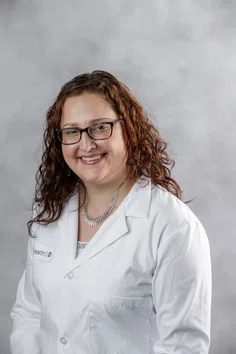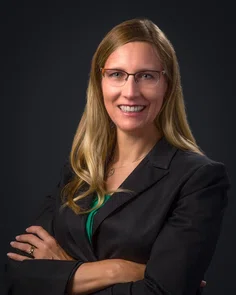


result
Expanding Allergy/Immunology’s Reach Through National Collaborations

Andrea A. Pappalardo, MD, FAAAAI
Unlocking the door to widespread access for crucial allergy and immunology care and resources requires collaboration with organizations and experts outside the allergy/immunology specialty. It’s a key belief for Andrea A. Pappalardo, MD, FAAAAI, who has been instrumental to the success of the School-Based Asthma, Allergy and Anaphylaxis Program (SA3MPRO™). “It would be silly to think we have all the solutions ourselves,” she said. “The reality is that more minds, informed by different experiences, allow for more innovative solutions. If we want successful and sustainable resources, it’s important to consider a variety of perspectives.”
By working with other national organizations to advance patient care, she said, the AAAAI reaches patients in new ways. “Patients don’t only come to allergists for allergy and asthma concerns,” she said. “As much as we wish they would. When working with other national organizations, we can create materials that have been informed by unique perspectives that account for needs we may not normally anticipate as allergist/immunologists. It also helps us get the correct information to patients and non-A/I professionals.”
In December of 2022, The AAAAI began a collaboration with the American Lung Association (ALA), Code Ana, the American Academy of Pediatrics (AAP), the National Association of School Nurses (NASN) and the Centers for Disease Control and Prevention (CDC) to expand SA3MPRO™ by developing two new toolkits. Dr. Pappalardo helped organize the efforts. “I recommended focusing on a toolkit that could address laws and regulations across the country,” she said. “There are websites with information about stock epinephrine and stock inhalers already, so I didn’t want us to duplicate work. I just wanted to fill in the gaps so that everything was in one place.”

“Allergy/immunology is a small field, but collaborations can help expand its reach. We want patient care performed outside our offices to be done correctly and legislation to address the correct needs. Collaboration helps address these important issues in different ways so we can all provide the best care possible for our patients.”

Andrea A. Pappalardo,
MD, FAAAAI
The Stock Epinephrine Toolkit consolidates evidence-based resources from multiple city and state-led epinephrine programs to combat anaphylactic emergencies in schools. Similarly, the Stock Inhaler Toolkit consolidates resources and model policies in accordance with several state-led asthma programs to combat child asthma emergencies in school. Both toolkits were released in 2023.
Resources resulting from national collaborations like SA3MPRO™ help healthcare professionals such as Susan Laubach, MD, FAAAAI, to make changes at the local level. In 2018, Dr. Laubach convened a coalition to disseminate the AAP Allergy & Anaphylaxis Emergency Plan (AAEP) in San Diego County so all students at risk for anaphylaxis would receive the same care. The AAEP was so widely accepted that school nurses asked for similar help with standardizing school asthma plans.

Susan Laubach, MD, FAAAAI
“We agreed that the SA3MPRO™ Emergency Treatment Plan would provide the information school staff would need to recognize and treat asthma symptoms in students at school and used it as the foundation upon which we created our local form,” she said. “Since standardizing the asthma school form for our county, we have rolled it out to the 42 school districts and have embedded it into the electronic health record of the county children’s hospital.”
The efforts have helped standardize care for over half a million children and eases burdens for parents, schools and medical practices alike.
National collaborations, like the latest toolkits, make accomplishments such as these easier. “Allergists don’t have to reinvent the wheel when they advocate for their patients with asthma in school,” said Dr. Laubach. “We have an easy-to-access resource that should be the first stop for anyone looking to work with schools around the topics of asthma, allergies and anaphylaxis.”
Dr. Pappalardo is also using the new toolkit to help make changes in local communities. She recently spoke at a meeting of the Wisconsin Allergy Society, where they discussed legislation for stock inhalers. Before the meeting she connected with the Wisconsin Asthma Coalition, the Wisconsin Department of Public Health and their ALA chapter regarding the legislation currently in development. “I also met with the pediatricians facilitating the writing of the legislation and provided them with our toolkit,” she said. “The allergists at my meeting with the Wisconsin Allergy Society were encouraged to help advocate to support stock inhaler policy in the state.”





